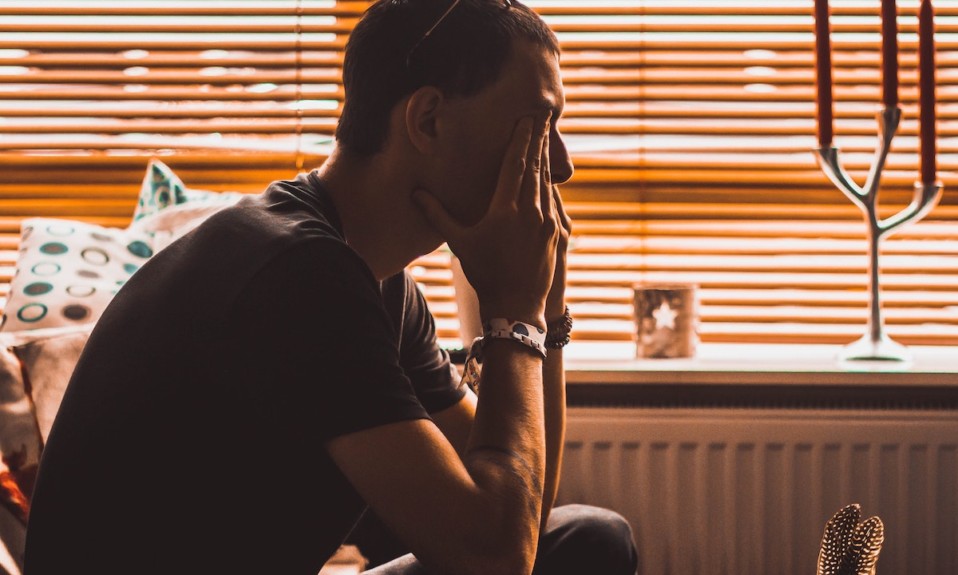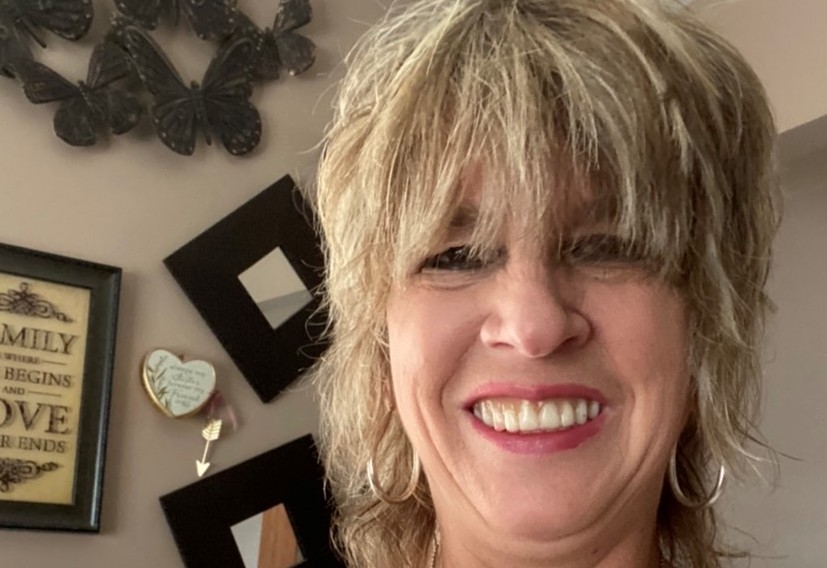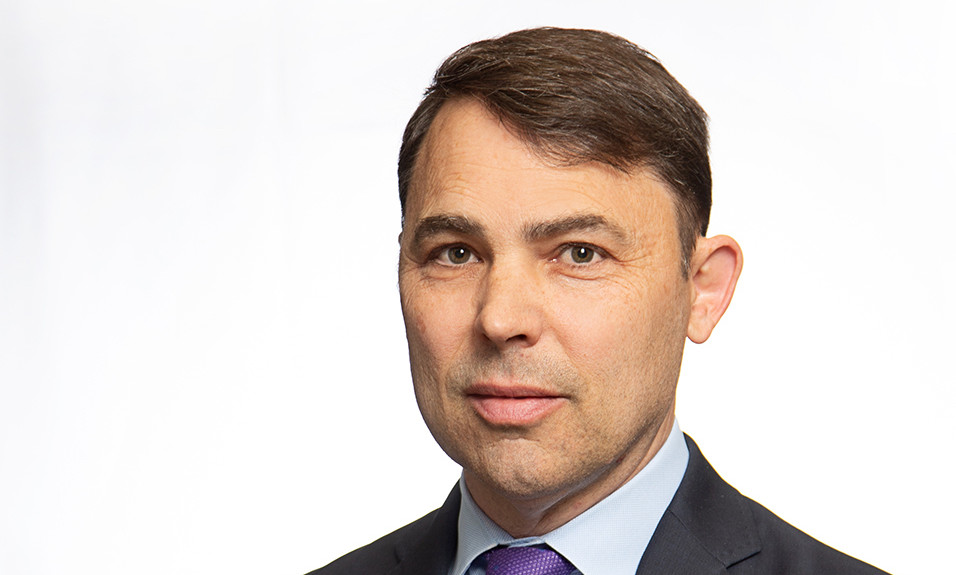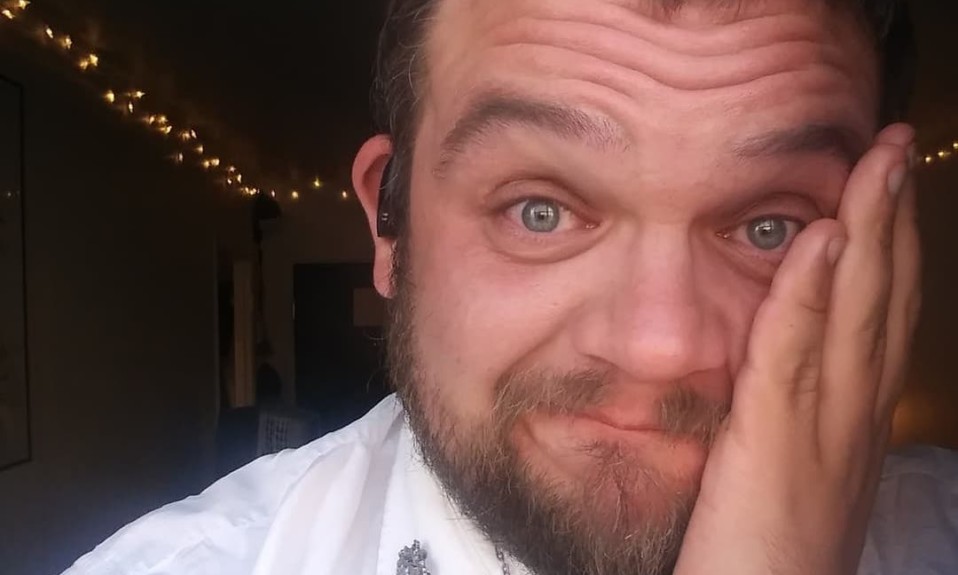Robert P.’s relationship with his wife, Leslie, somehow withstood the seemingly never-ending twists and turns of his addiction—and now they’re reaping the rewards of his newfound sobriety
Editor’s note: “The Turning Point” is a column focused on the moment or moments when our subjects realized they needed to seek addiction treatment.
By Veronica L. Holyfield
Growing up, Robert P. was drawn to all things deviant—anything that would activate his adrenaline. From smoking his mom’s cigarette butts as a young boy to racing motocross in adolescence to 20 years of using drugs and alcohol, he preferred to live in a state of rebellion.
Robert started experimenting with alcohol and weed in high school, as many teenagers do. It was when he was introduced to crystal meth that things escalated. He recalls his first hit of methamphetamine as the “greatest feeling of all time.” But the good times always seemed short-lived. For example, he says he failed his driver’s test at 16 because he had been tweaking and hadn’t slept for days.
In high school, Robert met and fell in love with a girl his age, Leslie, whom he would later marry. Although part of him craved that loving connection, he admits he wasn’t a good partner because he prioritized drugs and alcohol.
“I was so impressionable back then,” he remembers. “I witnessed some ugly stuff, and I was around some people that weren’t the greatest influences for a good chunk of my late teens and early 20s. In some ways, they were father figures, and they really protected me, but I learned how to stuff emotion and not show how scared I really was. I just wanted to get high so bad back then. I was willing to put my life in danger for a substance.”
I knew I had a problem, but I legitimately couldn’t stop the pills. … I was a mess—the physical addiction had taken over.”
—Robert P.
When Addiction Took Over
In his early 30s, Robert was recovering from a broken shoulder suffered in a motocross accident and was given pain meds. At the same time, he and Leslie were having difficulty in their attempt to have a child. They thought they had succeeded with in vitro fertilization (IVF), but it turned out to be a false positive. Robert and Leslie were so devastated that they made an ill-fated arrangement to help alleviate their grief. They decided to have a year of fun—partying, living like they were 20 again—and have a child naturally, without any stress.
“I’ll never forget it—it was my biggest mistake ever,” he says. “When that one year was over, she was able to stop, [but] my pill addiction really took off. At that point, I knew I had a problem, but I legitimately couldn’t stop the pills. That went on for a couple more years until [there was an] intervention. I was a mess—the physical addiction had taken over. I needed [the pills] just to be normal.”
After an at-home detox that he describes as “legitimate hell,” Robert was able to mostly abstain from using pills. However, this didn’t mark a turning point for him. On the contrary, his dependence on alcohol and cocaine resurfaced.

The turbulent lifestyle of cross addiction was eating Robert up—from pot and alcohol to meth to cocaine to pills and back to cocaine and alcohol—and so were his feelings of guilt over his friends who had died of either an overdose or suicide.
The Turning Point
Despite the chaos, Robert continued to attend therapy, always maintaining at least a level of honesty within that context. Eventually, he started seeing a new therapist, and within three sessions, he was posed with a set of questions that changed his life forever.
“I remember [the therapist was] like, ‘Have you ever thought about going to rehab?’ And I was like, ‘I can’t go to fucking rehab—I got a life,’ and her response was, ‘That’s right, this is your life. And are you happy?’ I was like, ‘No, I’m not happy, obviously. I’m crying on the phone with you.’ That’s when she was like, ‘I honestly can’t help you. You are beyond my scope of training, and unless you agree to a higher level of treatment, our time here is done.’ That honestly was a slap in the face,” Robert says.
Finally, he took real action. Robert called his wife and told her he needed help, and he checked himself into rehab four days later. Still, he wasn’t entirely ready to let down the defenses that had kept him insulated for so long. Through everything he had experienced—the types of people he had surrounded himself with, the reckless way he had used drugs and alcohol to numb his pain—his thick skin was about all he had left.
Sitting by himself under a tree at his treatment facility on his wedding anniversary, Robert wallowed in self-pity, feeling pangs of shame and regret. He wondered if any of this treatment work was worth it, and if he had it in him to be vulnerable and honest about everything. Then fate, in the form of a peer at the treatment center, intervened.
“This guy named Reid was a real alcoholic,” Robert says. “He drank way more than I did. He straight-up faceplanted in detox, and they rushed him down to the hospital [because] he knocked out all of his teeth. I was sitting under a tree, feeling like a real winner, and Reid came up, smiling. This dude was happier than me, and he’d been dragged through the mud way deeper.
“I don’t know what happened, but from that day forward after my conversation with Reid, I took rehab seriously. I was like, ‘I gotta fix myself.’ I had phone privileges, and I called my wife crying my eyes out, and I fucking promised her, ‘I want to fix this. I don’t want to let you down more than I already have.’”
There’s fire in me now that wasn’t there before. For the first time in my life, there’s structure and a healthy community.”
—Robert P.
Now Robert is about a year sober, and he and Leslie are expecting their first baby, the child they had been longing for. “We’re talking 20 years that I’ve known this woman, and I feel like it’s [only been] these past 11 months that I have actually been a standup man, a companion.” He says the tears now shed within the household are those of joy, not anguish.
“At every point in my life, I always did what I wanted to do, and now I really want to be sober,” Robert says. “There’s fire in me now that wasn’t there before. For the first time in my life, there’s structure and a healthy community.”
Top photo: Christopher Lemercie; bottom photo Liam Pozz














